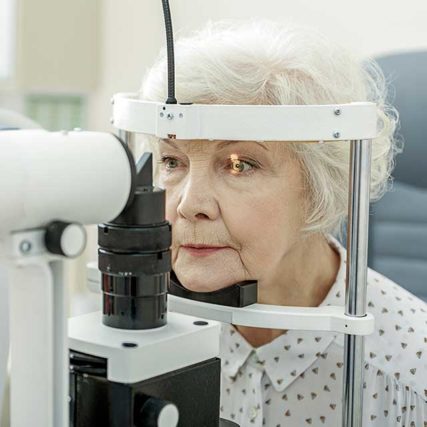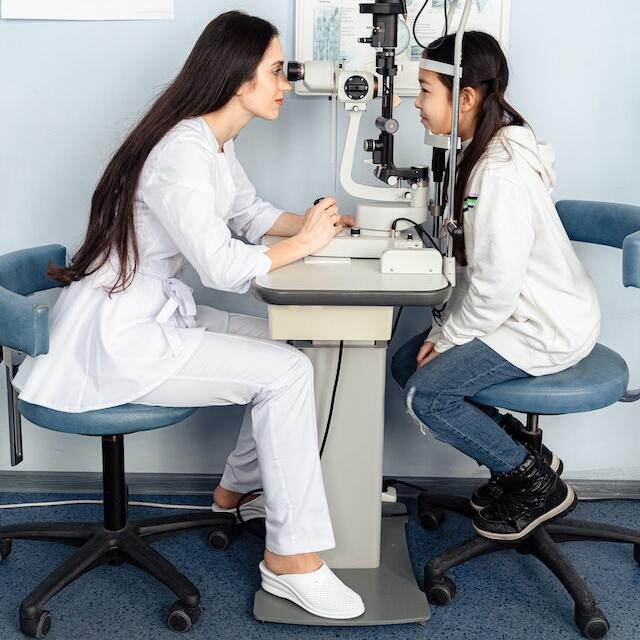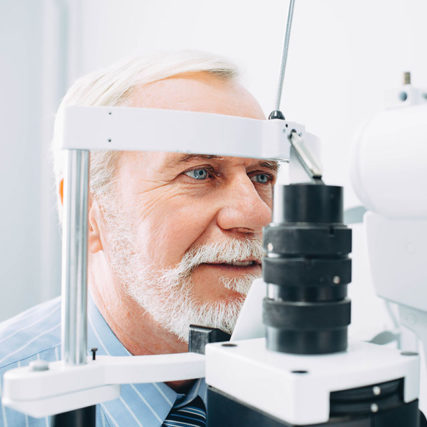Keeping Your Eyes Healthy is Our Top Priority
If you’re overdue for an eye exam, don't just settle for a quick prescription check. Our eye doctors offer comprehensive eye exams that go beyond just getting fitted for glasses or contacts.
Expect to be evaluated for eye diseases, how well your eyes work together, and get insight into your overall physical health — eye doctors often spot chronic conditions like high blood pressure or diabetes during an eye exam before symptoms arise.
Whether you're young or elderly, taking care of your eyes is essential for your well-being. Schedule an appointment with Hammonton Family Eyecare today!


Eye Exams Can Save Your Vision
Although it may be easy to overlook, regular eye exams are important because they help catch serious eye conditions such as glaucoma, macular degeneration, cataracts, and diabetic retinopathy before they permanently damage your vision.
Unfortunately, many of these eye diseases only show symptoms when they've reached their final stages, making early detection and treatment the key to saving your sight.
Eye Exams for Children & Young Adults
Children who have difficulties in school and sports may be dealing with an undetected vision problem or eye health issue. About 80% of what we learn comes through our eyes, meaning the longer a vision problem goes undiagnosed and untreated, the more it can impact your child's ability to learn and succeed.
The good news is that regular eye exams offer the best chance to catch and correct these issues before they become a barrier to your child's education.


How Often Do Kids Need to Have Eye Exams?
Statistics show that up to 10% of preschoolers and 25% of school-aged children experience vision problems. To give your child the best possible chance to succeed, it's important to prioritize regular eye exams.
The American Optometric Association (AOA) recommends eye exams at 6 months, age 3, and the start of school for all children. Children without vision problems should continue with eye exams at least every two years throughout school, but those with existing vision problems and risk factors may need more frequent vision problems.
Risk factors include:
- Being born prematurely
- Having developmental delays
- Having a family history of eye disease
- Strabismus (crossed eyes)
- A history of eye injury
- Physical illness
If your child already wears eyeglasses or contact lenses, then they should get an eye exam at least every 12 months.
What Happens During An Eye Exam?
At Hammonton Family Eyecare, our eye doctors will make sure that you get an accurate prescription that helps you see the world with clarity.
Our expert eye doctors in Hammonton, New Jersey, uses state-of-the-art equipment to check patients’ vision thoroughly. If you already wear eyeglasses or contact lenses, we'll assess your visual acuity with and without them. We'll also ask you to read from an eye chart at various distances to test your eyesight.
A phoropter will also be used to carefully check for astigmatism, nearsightedness, and farsightedness. It involves having you look through a series of lenses and giving feedback on which ones provide the clearest vision. And with the help of a retinoscope, we'll measure how light focuses on your retina with each lens.
All these tests, and more, give us the information we need to ensure your eye health so we can give you an accurate prescription.


Vision Exams For Those Over 40
Your eyes are like windows to the world, allowing you to see and experience all the beauty around you. But as we age, these windows can become cloudy and blurred, making it difficult to fully appreciate life's simple pleasures. That's why it's important to stay vigilant about your eye health and take steps to prevent vision loss by going for regular eye exams.
Our experienced optometrists will perform a thorough evaluation of your eyes and provide you with personalized recommendations to help you maintain clear vision and prevent age-related eye conditions.
